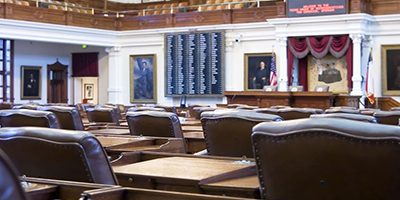The Regular Legislative Session is over and the Comptroller has certified Texas’ budget that spends over $79 billion on Health and Human services over the next two years. That is about 37% of the total budget and ranks as the second most expensive budget item only behind Education spending. The vast majority of this funding goes towards the Texas Medicaid Program, while the rest is spent on special services, administration, transitions, and pilot projects. Although the budget was one of the more contentious issues debated during the Regular Session, passing a budget bill is the one thing Texas’ Legislature is legally required to do.
However, a few de facto “must pass” bills were not passed during Texas’ 85th Regular Session. Legislation to continue the existence of the Texas Medical Board (the agency that licenses doctors to practice in Texas) failed to pass, and forced the governor to call a special session. Legislators put this must pass legislation on the “fast-track,” as they cannot take up any other items during the special session until that bill and other “sunset” legislation is passed.
Of course, not all bills fell victim to legislative gridlock; below is a list of some the major healthcare bills passed during the regular session.
HB 10 by Rep. Four Price (R-Amarillo) and Sen. Judith Zaffirini (D-Laredo) requires health benefit plans that provide benefits for mental health conditions and substance abuse disorders to provide those benefits under the same terms and conditions as the plan’s medical and surgical benefits, known as mental health parity. The bill requires the Health and Human Services Commission to designate an ombudsman for behavioral health access to care to help consumers and behavioral health care providers to navigate and resolve issues regarding consumer access to behavioral health care, including mental health conditions and substance abuse disorders. The Mental Health Parity Work Grouprequires the Health and Human Services Commission to create a mental health condition and substance abuse disorder parity work group to increase the understanding of and compliance with state and federal rules on the availability/terms of behavioral health care benefits. The work group will be composed of the ombudsman, mental health and substance use disorder consumers, advocates, providers, and profession representatives from health benefit plans and state agencies. The group is required to make reports to the legislature prior to each regular session.
SB 1107 by Sen. Charles Schwertner (R-Georgetown) and Rep. Four Price (R-Amarillo) establishes a definition of “telehealth service” and “telemedicine” in state law and clarifies that the same standard of care that applies in a traditional, in-person setting also applies to telemedical services. It allows practitioners to interact with patients through a real-time audiovisual interaction, or through an asynchronous “store and forward” process that includes clinically relevant diagnostic imagery as well as the patient’s relevant medical history, laboratory results, and prescriptive history. This legislation came to fruition after multiple years of rules and lawsuits by the Texas Medical Board to prohibit such services in Texas.
HB 3276 by Rep. Tom Oliverson (R-Houston) and Sen. Larry Taylor (R-Friendswood) requires a freestanding emergency medical care facility to post a notice that lists the health benefit plans in which the facility participates in the provider network, or that states the facility is not a participating provider in any health benefit plan provider network. A facility can satisfy the notice requirement by giving notice on its website listing the health benefit plans in which the facility is a participating provider and providing to a patient written confirmation of whether the facility is a participating provider in the patient’s health benefit plan provider network. This legislation has received national attention, as Texas has the largest number of Freestanding ER’s in the nation, coverage over huge medical bills, and a lot of consumer complaints regarding Freestanding ER’s transparency.
HB 2025 by Rep. Yvonne Davis (D-Dallas) and Sen. Charles Schwertner (R-Georgetown) requires licenses issued to long-term care facilities to expire on the third anniversary of the date the license was issued. It requires the Health and Human Services Commission to review and develop efficiencies in the methods used to issue informational materials to a licensed entity; and requires the HHSC (Health and Human Services Commission) to develop and implement a system to track the scope and severity of violations of rules and standards regulating long-term care facilities, making it comparable to the system used by the Centers for Medicare and Medicaid Services to categorize the scope and severity of violations for nursing homes and assisted living facilities.
SB 584 by Sen. Royce West (D-Dallas) and Rep. Toni Rose (D-Dallas) requires the Texas Medical Board to adopt guidelines for the prescription of opioid antagonists. The guidelines must address the prescribing of an opioid antagonist to a patient to whom an opioid medication is also prescribed. It must also identify patients at risk of an opioid-related drug overdose and prescribing an opioid antagonist to that patient or to a person in a position to administer the opioid antagonist to the patient. It provides that a physician who acts in good faith and with reasonable care is not subject to criminal or civil liability or any professional disciplinary action for prescribing or failing to prescribe an opioid antagonist. This also applies to any outcome resulting from the eventual administration of an opioid antagonist prescribed by a physician. This is the third session in a row for the legislature to attempt to reign in the opioid abuse in the State of Texas.
For more information on these bills you can visit, www.capitol.state.tx.us.


